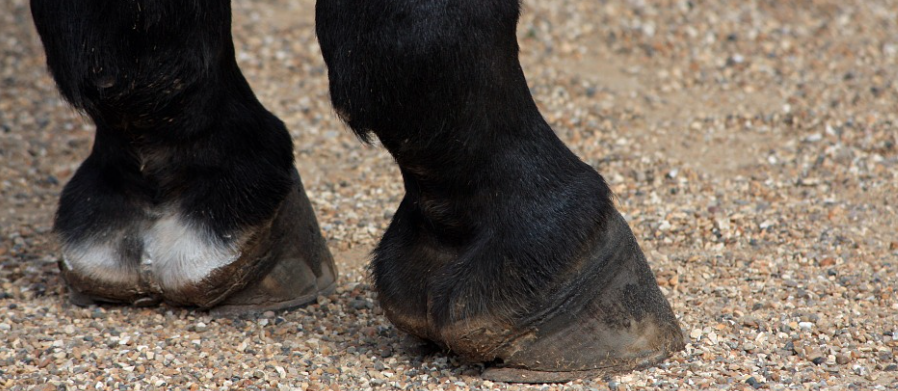
Laminae, found on horses, is the inner layer of the hoof. If nutrient and oxygen-rich blood is not getting to the laminae, it can lead to laminitis. Laminitis is inflammation of the laminae, causing swelling in the tissue of the hoof. When the laminae doesn’t receive blood, the cells become damaged, and the laminae eventually begins to die. This causes extreme pain for the animal and makes it quite difficult for the horse to support its own weight. When a condition of laminitis goes unaddressed, it often leads to euthanasia. If your horse is showing any signs of laminitis, the sooner you address the issue, the better.
Signs
Horses suffering from laminitis may display some or all of the following…
– uncoordinated movement
– inability to walk
– no desire to walk
– when walking, heels down first, then toes
– when standing, leans back to hind feet (laminitis is more common in front)
– anxiety
– increased heart rate
– overweight or obese
Causes
– diet high in carbohydrates (sugar and starches)
– lack of exercise
– overweight or obese (typically due to poor diet & lack of exercise)
– stress (changes in environment and frequent traveling can cause this)
– infection
– Cushing’s disease
Prevention
1. Exercise– horses are meant to walk 20 hours per day (helps horses to keep a healthy weight and reduces stress)
2. Whole, Organic Diet
– a diet high in carbs can lead to weight gain, joint issues, & laminitis
– don’t over feed
– restrict intake of grasses (especially rye grass and clover)
3. Farrier– have a farrier frequently check your horse’s hooves
4. Companion– having a companion can reduce stress
Addressing Laminitis
If your horse has laminitis, call your vet!
1. Work with your vet.
2. Transfer your horse into a small pen with deep bedding such as shavings so that the bedding can mold to your horse’s hooves, providing support.
3. Have a companion close by to reduce stress.
4. Manage food intake.
5. Do not soak or spray your horses hooves with cold water as this can exacerbate the issue.
6. To help assist what you are already doing with your vet, use the following herbs…
– Hawthorn & Bilberry (blood pressure and flow)
– White Willow & Devil’s Claw (reduce pain)
– Celery Seed (reduce inflammation)
– Chamomile (reduce inflammation, improve circulation, improve digestion)
– Comfrey (reduce tissue inflammation)
– Kelp (hoof strengthener)
– Rose Hip (hoof strengthener)
– Garlic (hoof strengthener)
Concerned about your horse’s health? Contact PetMedella at 612-812-9121 or email us at info@petmedella.comand ask about our Animal Wellness Kit.
